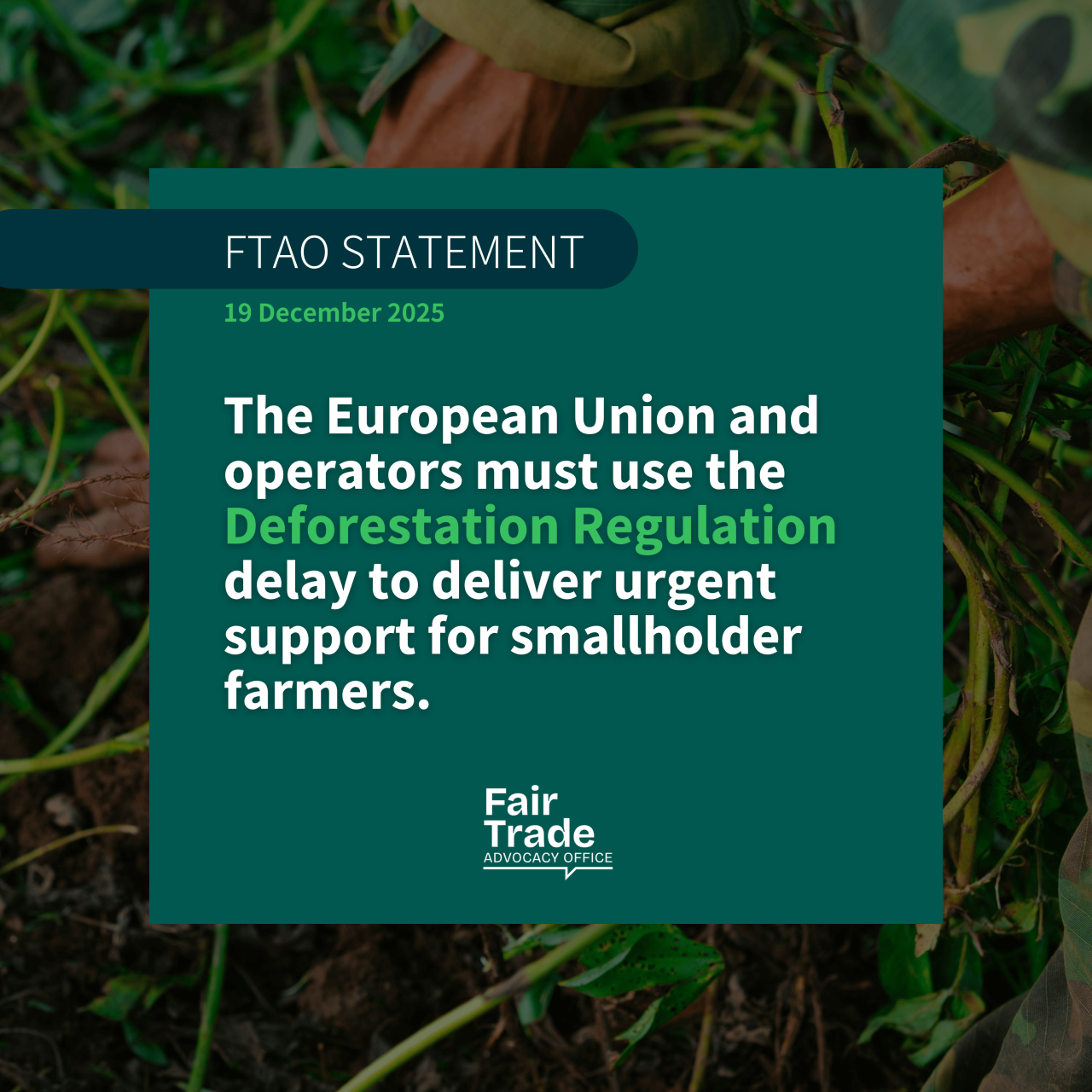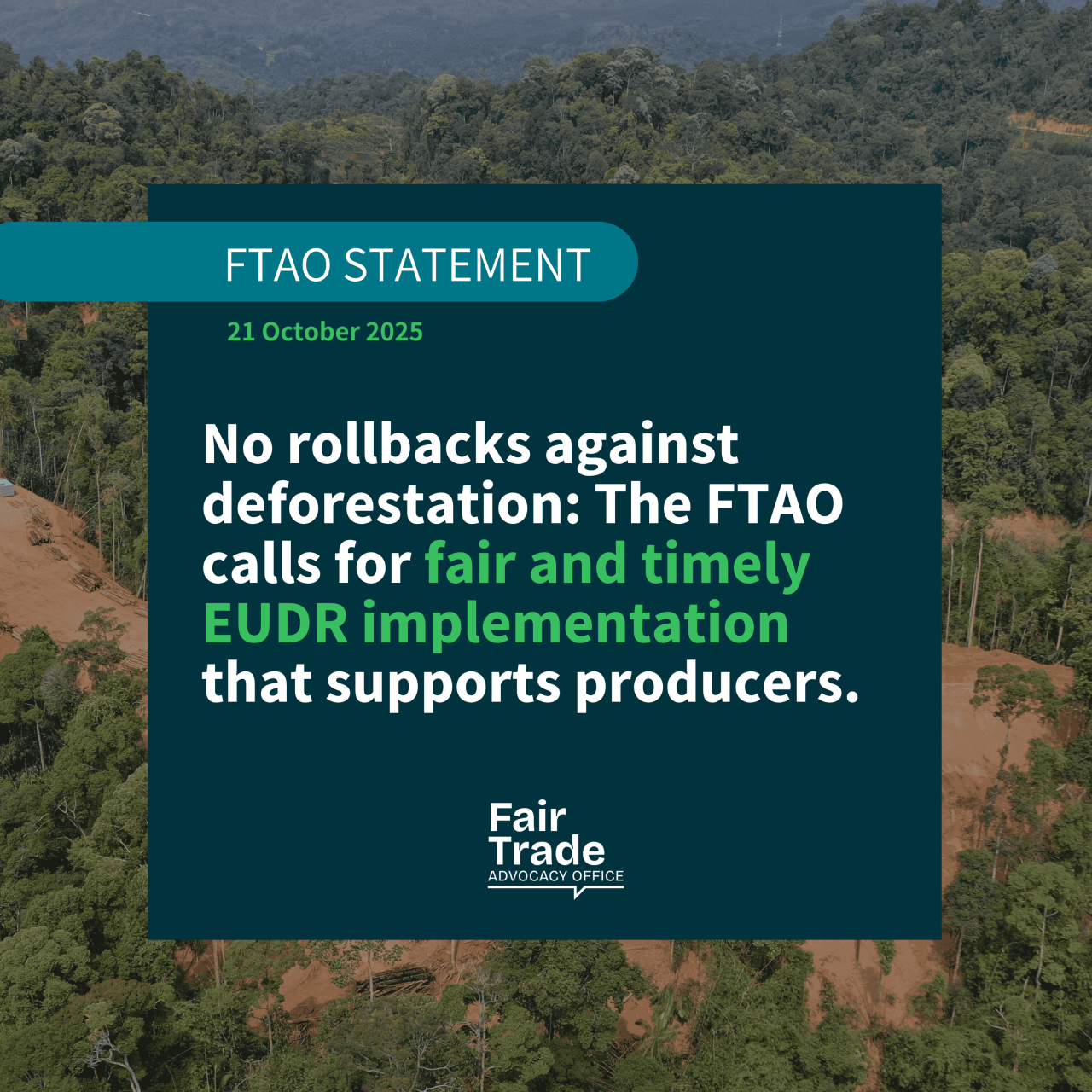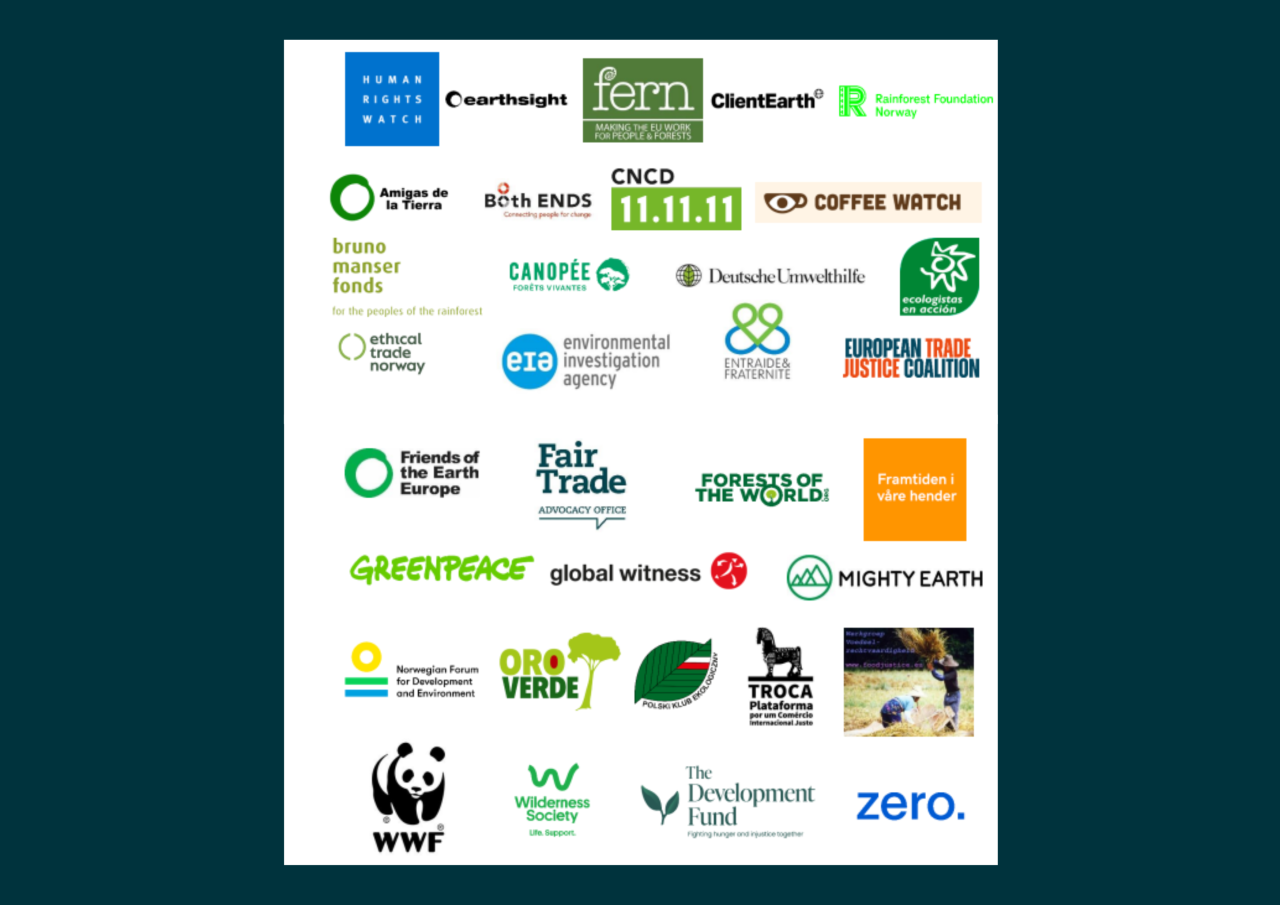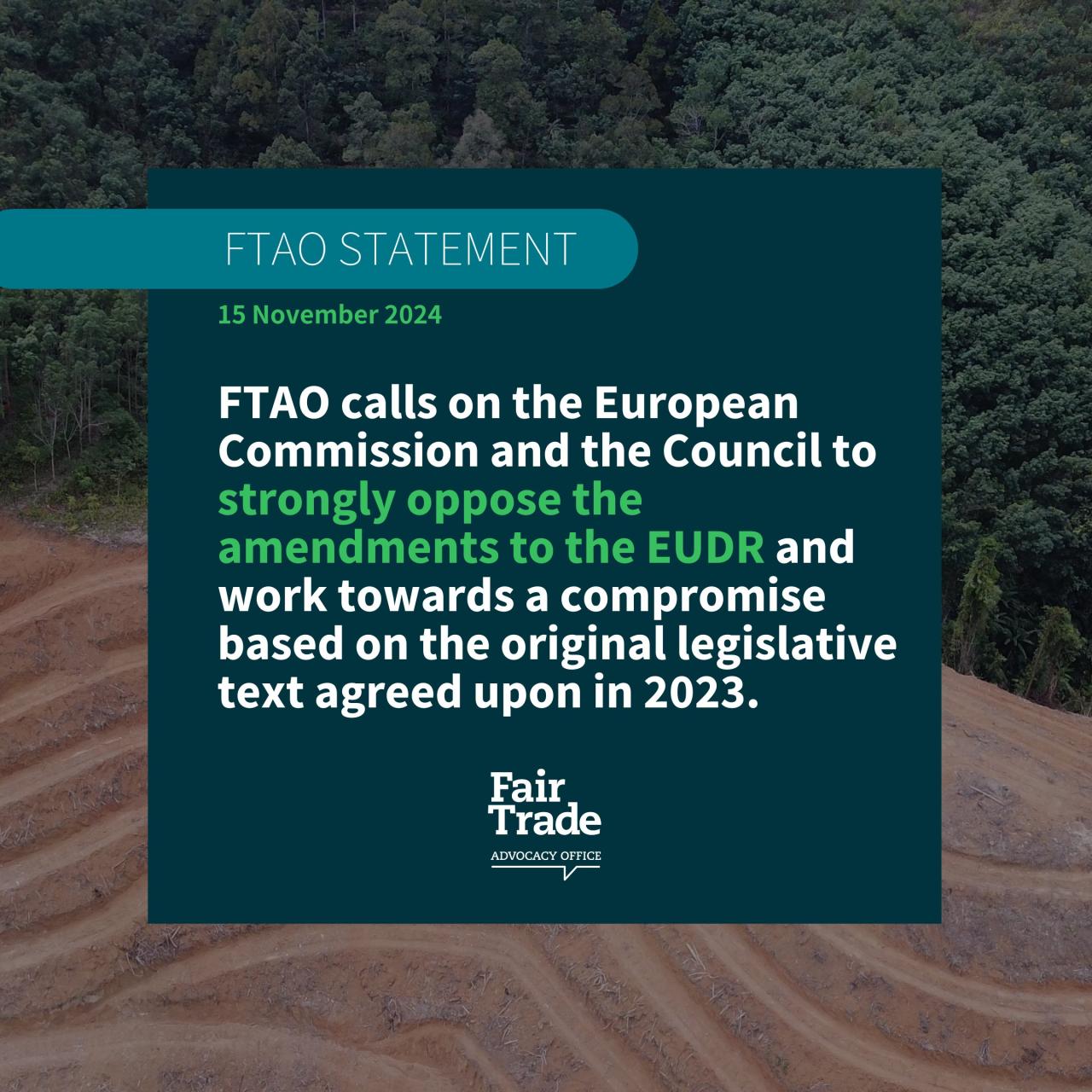On the 2nd of October, the European Commission issued a formal proposal to extend the socalled ‘transition period’ of the EUDR by one more year. This decision was made in the context of mounting pressure from EU Member States, trade partners from third countries and various economic operators to delay the implementation of the rules. The Commission stressed that a delay would be needed to address the different levels of readiness among international partners and EU stakeholders. In parallel, it released a series of much-awaited documents: a strategic framework for international partnerships, a guidance document, as well as an updated FAQs document.
The Fair Trade Advocacy Office (FTAO) acknowledges that this additional time is an opportunity to give vulnerable supply-chain actors such as smallholder farmers more margin to adapt their production systems to meet EUDR requirements; this is also a necessary step given the Commission’s own delays in providing stakeholders with further legal clarity regarding their obligations.
The EUDR is a one-of-a-kind piece of legislation. It is one of the most precious remnants of the European Green Deal. Since its inception, the FTAO has been an ardent supporter of this law and its objectives of tackling global deforestation and forest degradation. However, it also recognises that the success of such a law depends on whether smallholders are given the necessary financial resources to be able to comply with its stringent requirements.
On the one hand, the FTAO supports the extension of the transition period on the condition that the extra time is used to invest further in productive and technical capacity building efforts within supply chains to facilitate data collection and storage among smallholders. On the other hand, echoing calls from companies and CSOs, we urgently insist that the proposal of the Commission does not go beyond altering the implementation date, as re-opening other elements of the text poses a real risk of watering down the content and undoing a lot of the progress that so far been in cleaning up global supply chains.
Despite the EUDR not being implemented yet, there have already been some visible improvements in global supply chain management as various actors prepare for its implementation: companies have been making important overdue investments in rendering their supply chains more traceable and transparent, and partners on the ground are also making significant strides in adapting their production methods accordingly. It is essential that we capitalise on this momentum and ensure that no further amendments are made by the colegislators. However, it must also be emphasised that many operators still have a long way to go in fulfilling their obligations and further coordination is needed to implement the partnerships with producer countries that the European Commission is putting into place.
More From The Workstream

EU and operators must use the EUDR delay to deliver urgent support for smallholder farmers

No rollbacks against deforestation: The FTAO calls for fair and timely EUDR implementation that supports producers

Joint letter to the European Commission: Ensuring EUDR benchmarking reflects human rights and environmental risks

